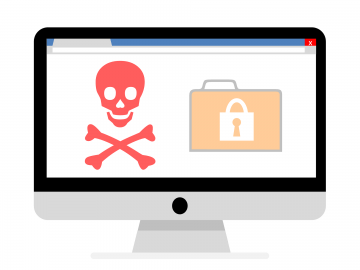Canon DSLR Hacked With Crypto-demanding Ransomware – but for Research

Technology is a marvelous thing, and the Internet has made a reality out of a multitude of things that were thought impossible just a few years back. Information on any topic imaginable is at the tip of a user's finger, wondrous sights and opportunities beyond count lie just one click away. With this being the case, it's easy for users to forget that the Internet also hides many dangers, and they should not let their guard down under any circumstance. Because the fact of the matter is, the same connection that can bring you awe and all sorts of opportunities can also be used as a line of attack by cyber-criminals.
This is the trap of the so-called “smart home.” As devices grow in sophistication, they inevitably get to a level when they get fitted with the ability to access a Wi-Fi network. Any electronic device advanced enough has this ability – from fridges to light switches to electric heaters to video cameras. That's all well and good because it allows the user unparalleled connectivity with the said device – but it also gives undesirables the opportunity to take a shot at the said device.
And as security researchers at Check Point Software Technologies discovered, camera devices could easily become the target of a ransomware attack. IT security specialists had no trouble at all devising a way to exploit the camera's Wi-Fi connection to encrypt all the photos in it, then put on a message demanding for ransom.
The weakness that gave a foothold into the devices used for the experiment is the Picture Transfer Protocol universally used by video cameras to transfer images. This protocol is very well fir for purpose, as it allows the transfer of files faster than traditional methods. Unfortunately, it also makes the device in question vulnerable to malware. It is unauthenticated and can be used with both Wi-Fi and USB, which makes it a serious hole in the defenses of any device and an infection vector that's easy to exploit by cybercrooks to the end of delivering malware.
On first glance it may appear that cameras would be less valuable targets than mobile devices or desktop computers, as they usually contain less crucial information compared to other targets, targeting them can still be damaging to an unprepared user.
The vulnerability of Canon cameras was revealed way back in March 2019, with a security patch in May, but evidently it was not enough, which prompted Canon to issue a security advisory. Said advisory requested its users to avoid using unsecured Wi-Fi networks and not to forgo installing the new security patch onto their cameras. Unfortunately, not all manufacturers are as quick to respond, or as diligent as Canon with their security patch, and while there is no indication that this particular vulnerability has been exploited to date, smart camera owners are advised to take heed.
What to do to Protect Yourself From Falling Victim to Malware Targeting Smart Devices
- Be aware that any device can be a target. It doesn't matter that it may seem insignificant – hackers have targeted routers and other similar devices for years. You need to operate each smart device with the knowledge that it can fall prey to malware at some point, and prepare for that accordingly.
- Install all updates. Even though it may seem that your device works perfectly as it is and it may be annoying to have to do so, most of these are actually measures taken by the creators of the device to improve your safety.
- Do not connect your devices to any public network. Ideally, use them only to connect to your own Wi-Fi networks, or ones that you’re absolutely certain are secure.








